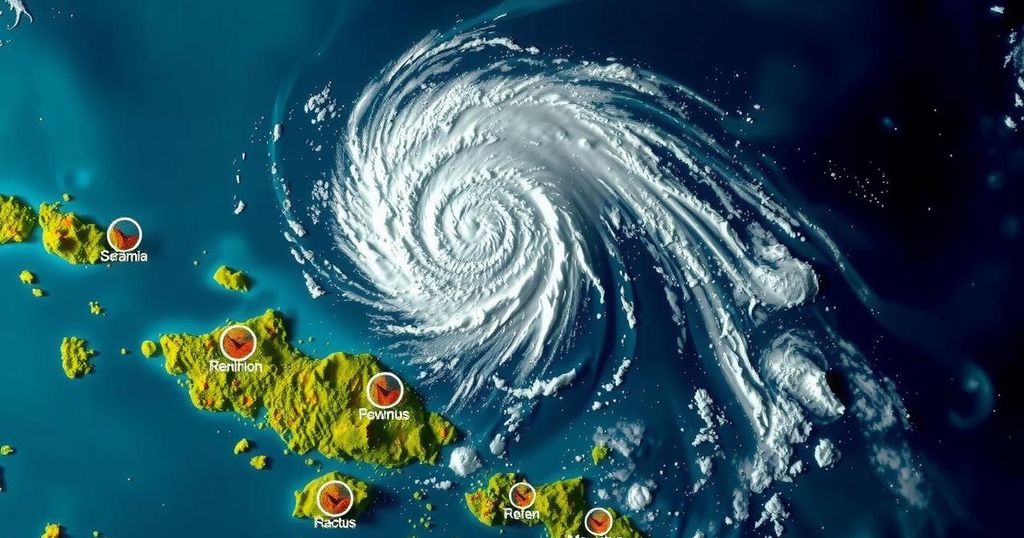Tropical Cyclone ‘Bheki’ Impacting Mauritius and Réunion, November 2024

Tropical Cyclone “Bheki” impacted Mauritius and Réunion on November 21, 2024, with winds reaching 74 km/h and moderate rainfall. The cyclone has shown signs of both potential strengthening and weakening, influenced by local environmental factors. Its rapid development has made it a notable storm in the current cyclone season, bringing attention to the region’s weather dynamics.
On November 21, 2024, Tropical Cyclone “Bheki” passed near the islands of Mauritius and Réunion, generating sustained winds of 74 km/h (46 mph) and moderate rainfall. Despite exhibiting tropical characteristics, the cyclone faces limitations in development due to a constrained warm air mass and prevailing high pressure in the area. By November 22, the storm had slowed its movement southwest of La Réunion, influenced by local terrain but is expected to accelerate as it shifts away from land.
The cyclone’s convective activity, which had shown signs of revitalization after an earlier lull, is in proximity to a jet stream feature that may facilitate further strengthening. Current weather models predict that Bheki could maintain or marginally increase its intensity within a twelve-hour window, though subsequent interactions with drier air may lead to a weakening trend. While moderate rains are anticipated over Mauritius through November 22, Réunion can expect similar precipitation from November 22 to 25.
Bheki has recorded a rapid intensification since its formation on November 14 and reached the status of Intense Tropical Cyclone by November 18, marking it as the strongest November tropical cyclone on record in the African basin. As the second named storm of the 2024/25 South-West Indian Ocean Cyclone season, its trajectory and impact are being closely monitored by meteorologists.
Tropical Cyclone “Bheki” has emerged as a significant weather event in the South-West Indian Ocean, particularly affecting the islands of Mauritius and Réunion. Formed on November 14, 2024, Bheki rapidly intensified, showcasing the dynamic nature of tropical cyclones in this region. The current season has witnessed varying storm intensities, with Bheki setting records for its strength and potential impact on local weather patterns. Understanding these cyclones helps in predicting their behavior and preparing for their consequences on coastal populations.
In conclusion, Tropical Cyclone “Bheki” exemplifies the complexities associated with tropical systems, showcasing rapid intensification followed by potential weakening as local conditions shift. Current predictions highlight both the uncertainty and variability in cyclone behavior, especially in the presence of environmental influences such as sea surface temperature and jet streams. The storm serves as a critical reminder of the importance of continuous monitoring and preparedness for affected regions, specifically Mauritius and Réunion.
Original Source: watchers.news






